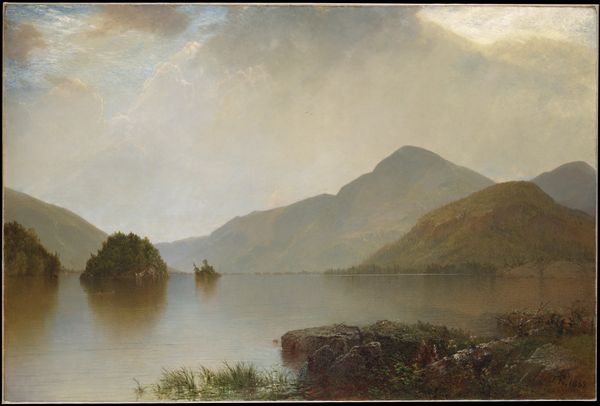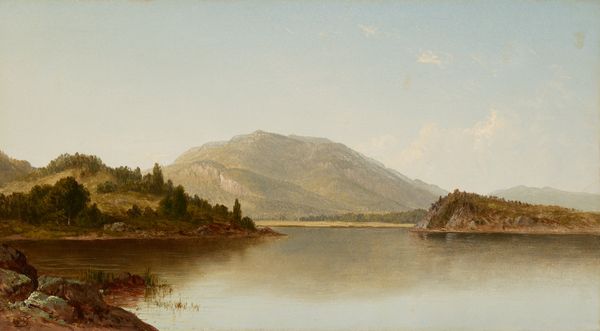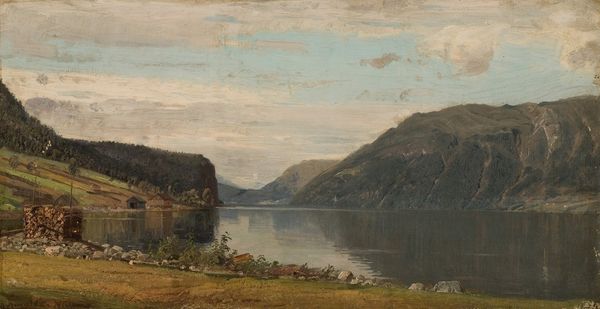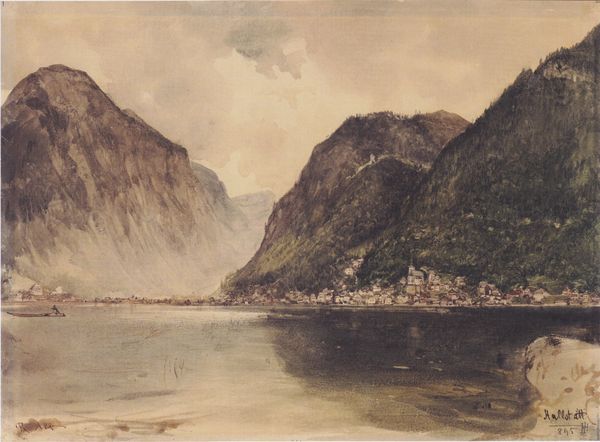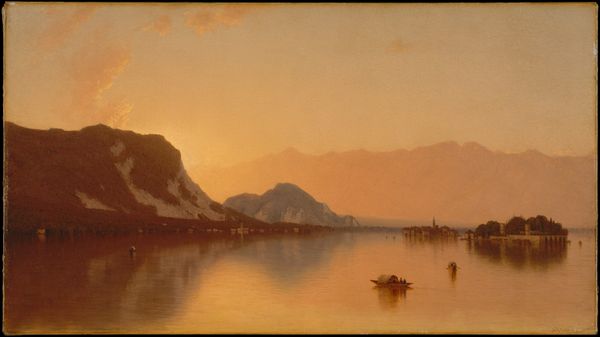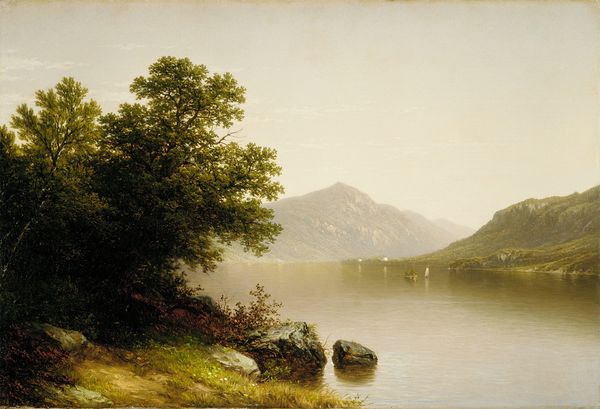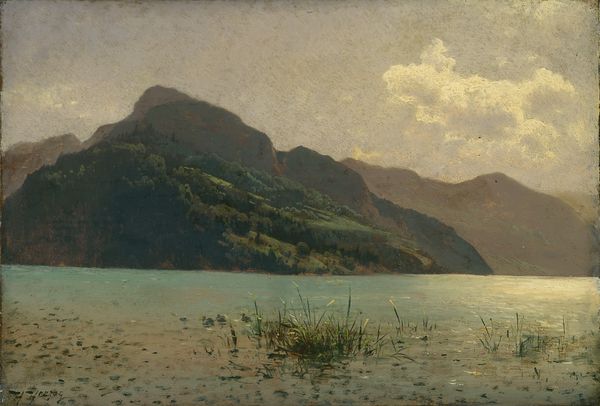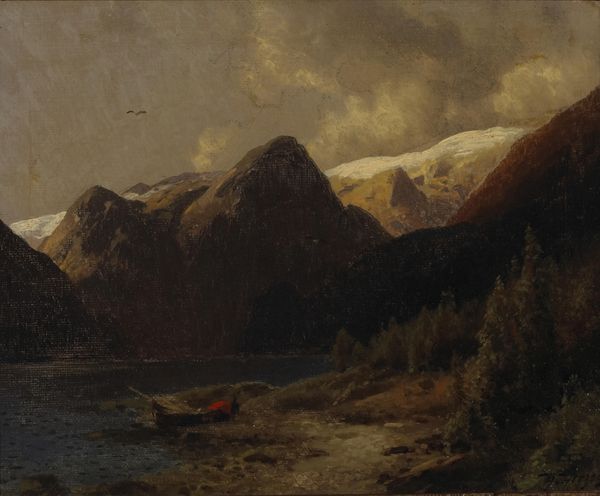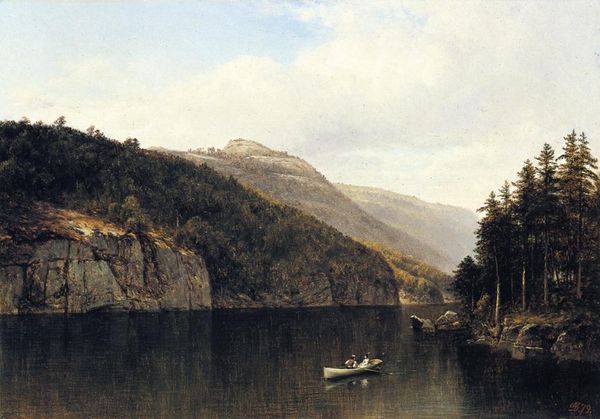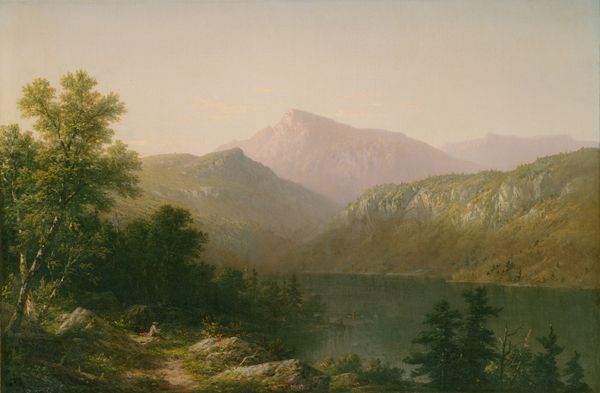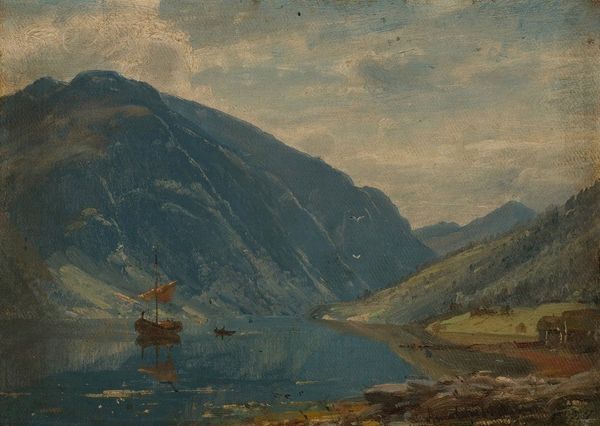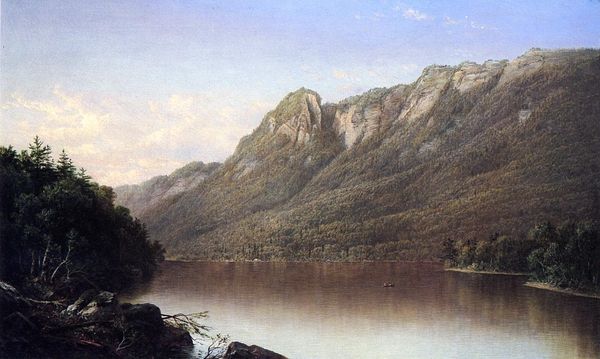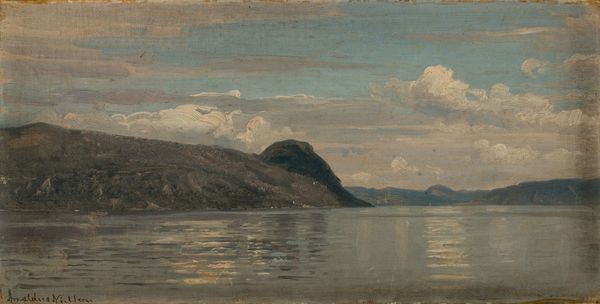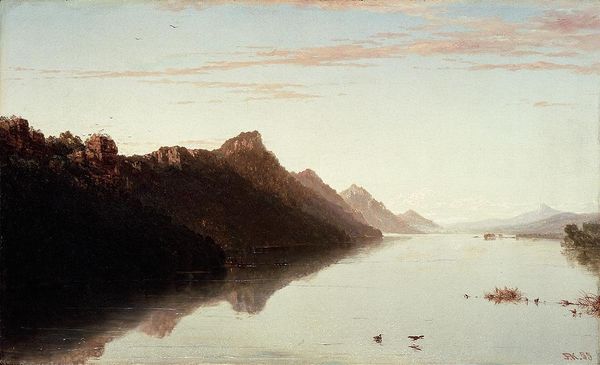
Dimensions: 12 1/8 x 20 1/16 in. (30.8 x 51 cm)
Copyright: Public Domain
Curator: We're standing before "Mountain Lake Scene," an oil on canvas completed by John William Casilear in 1883. It resides here at the Metropolitan Museum of Art. What strikes you first? Editor: That pervasive sense of tranquility, a quietude. It’s incredibly subdued in palette, all muted greens and greys. The mist-shrouded mountains in the distance create an almost dreamlike quality. Curator: Casilear, as a member of the Hudson River School, often depicted scenes that celebrated the American landscape. What we see is less a precise transcription of nature and more a romantic idealization. Editor: Right, this isn’t just about pretty scenery. I'm struck by who this idealized landscape is *for*, you know? Consider the politics of pristine nature. Whose access is privileged? Who’s erased? Indigenous presence is notably absent here, which is, in itself, a loaded statement. Curator: A valid point. It's important to remember the historical context: this image emerges during a period of intense westward expansion and erasure of Indigenous communities. The painting’s quiet, seemingly untouched vista idealizes a land that was, in reality, undergoing significant social and environmental change. The rise of tourism shaped these landscapes, sanitizing them for public consumption, almost like visual propaganda. Editor: Exactly. And look at the small boat in the center of the lake, dwarfed by the imposing mountains. It’s picturesque, yes, but it also emphasizes the power and sublimity of nature, reinforcing this narrative of human insignificance in the face of grand, untouched wilderness. The very lack of clarity evokes Romantic notions of awe and wonder, blurring the edges between observation and imagination. It invites the viewer into that sublime moment of encounter, even if a selective one. Curator: Casilear's technique contributes to that mood. The impasto brushwork adds texture to the foreground elements while the distant mountains dissolve into hazy outlines. Editor: Seeing through our present consciousness, the scene asks difficult questions of environmental ethics, visual culture, and colonial history, reminding us that even the most peaceful landscapes can harbor complex politics. Curator: I agree. The work allows for engagement with themes far beyond simply recording a "pretty scene," resonating in today's complex discussions surrounding ecological conservation, representation, and identity. Editor: And so we can see that a landscape is never just a landscape; it is a coded representation of a worldview.
Comments
No comments
Be the first to comment and join the conversation on the ultimate creative platform.
